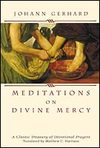This should prove interesting….
Link: NBC11.com – News – Gay Priests Running For Episcopal Bishop Of California.

Cyberbrethren: A Lutheran Blog
by Rev. Paul T. McCain
This should prove interesting….
Link: NBC11.com – News – Gay Priests Running For Episcopal Bishop Of California.
An interesting and well done article on the philosophy that underlies the success of Robert Schuler’s ministry and how things are going to work out under his son, who has now formally taken over the ministry from his father.
Ecumenical News International
Daily News Service
22 February 2006
Openly homosexual church leaders urge inclusive Christianity
ENI-06-0179
By Maurice Malanes
Porto Alegre, Brazil, 22 February (ENI)–A group of openly
homosexual church leaders meeting during the assembly of the
World Council of Churches have advocated a more inclusive
Christian faith that embraces people of all sexual orientations.
“We are here, because we do not wish to be segregated or
isolated,” said the Rev. Nancy Wilson, moderator of the US-based
Metropolitan Community Churches. “And we are here to encourage
the churches to do justice within their own communions when it
comes to people with HIV/AIDS; and those who are lesbian, gay,
bisexual or transgendered.”
She was delivering a message during a 20 February service at the
chapel of the Pontifical University of Rio de Grande do Sul in
Porto Alegre, Brazil while speakers in another venue at the ninth
assembly of the World Council of Churches were debating church
unity.
The Metropolitan Community Churches was launched in 1968 to
minister to ‘gay, lesbian, bisexual and transgender persons. It
has since grown to include 43 000 adherents in almost 300
congregations in 22 countries.
“We come to the WCC as a denomination and movement of people who
have been healed and transformed by the powerful touch of a
living Saviour, whose mercy and love have reached where the
institutional church would and could not reach,” said Wilson.
Also as the service was held, South African Anglican Archbishop
Desmond Tutu was delivering an address to the main session of the
assembly in which he stated that “gay, lesbian, so-called
straight, all belong and are loved” by God.
“I struggled against racism because it sought to prejudice
someone because of something about which they could do nothing,
their skin colour,” Tutu later told journalists. “I could not
keep quiet so long as people were being penalised about something
which they could do nothing about * their sexual orientation.”
In her message at the service of the Metropolitan Community
Churches, Wilson said she and others in the denomination could
empathise with the persecution experienced by Christian Dalits,
once called untouchables, in India, who also brought their
stories to the WCC assembly.
Wilson also highlighted the murder in the last 18 months of 12
gay men in Jamaica, some of whom were HIV/AIDS workers and
community organizers and lamented that “no one in the government,
university or the churches is speaking up, offering support or
shelter or help”.
She stressed that the Metropolitan Community Churches was at the
WCC gathering “to publicly call on the WCC and its member
churches to repudiate violence against people for their sexuality
or their HIV status.” But she added, “We came, even more, because
we have so much to offer to the wider church and community * and
because the Lord is upon us.” [465 words]
All articles (c) Ecumenical News International
Reproduction permitted only by media subscribers and
provided ENI is acknowledged as the source.
Ecumenical News International
PO Box 2100
CH – 1211 Geneva 2
Switzerland
Tel: (41-22) 791 6088/6111
Fax: (41-22) 788 7244
Email: eni@eni.ch
I really could not make this kind of thing up if I tried.
Oh, boy….now they’ve gone and really done it! The “Essential Paintings” list was interesting. The “Essential Philosophers” was equally so….but….now they dare venture into the treacherous waters of trying to nail down an essential reading list of spiritual and devotional writings for theologians, the brave souls! What do you think of their list?
Link: Faith and Theology: Essential spiritual and devotional writings for theologians.

Here’s my take on it. I like their goal of linking theology with spirituality. We classical Lutherans would think instantly of the necessary understanding that theology is a “habitus” … an inward inclination of the heart, a “habit” formed in us by the Holy Spirit who instills and preserves true faith. I like this emphasis in their list.
They probably don’t know about Johann Gerhard, but he really must be on their list as the finest example of writers of “Protestant” spirituality from the Lutheran confessional tradition. And since, well, how to say these, we were the first out of the chute when it came to the Reformation, John Gerhard’s Meditations on Divine Mercy really needs to be here, along with his Sacred Meditations.
What would you put on their list? Or remove from their list?
This is one to watch. In Illinois several pharmacists have sued after being terminated for refusing to give customers so-called “emergency contraception.” Here in Missouri a Target pharmacist was fired for the same reason.
Link: BREITBART.COM – Pharmacists Sue Over Birth Control Policy.
Why should we even bother to pay attention to what the Pope says? I can hear that question being asked by some of my earnest Lutheran friends. Well…let’s see….other than the fact that Pope is the spiritual head and chief teacher of the world’s largest group of people who claim to be Christians, I can’t think of a good reason to pay attention to what he has to say. Here is a good summary of Pope Benedict’s first encyclical.
Link: BREITBART.COM – Pope Warns About Loveless Sex.
Pope Warns About Loveless Sex
Jan 25 10:35 AM US/Eastern
Email this storyBy NICOLE WINFIELD
Associated Press WriterVATICAN CITY
Pope Benedict XVI warned in his first encyclical Wednesday that sex without unconditional love risked turning men and women into merchandise.
In the 71-page document “God is Love,” Benedict explored the relationship between the erotic love between man and woman, referred to by the term “eros,” and the Greek word for the unconditional, self- giving love, “agape” (pronounced AH-gah-pay).
He said the two concepts are most unified in marriage between man and woman, in which a covetous love grows into the self-giving love of the other, as well as God’s unconditional love for mankind.
He acknowledged that Christianity in the past has been criticized “as having been opposed to the body,” _ the erotic form of love _ “and it is quite true that tendencies of this sort have always existed.”
But he says the current way of exalting bodily love is deceptive.
“Eros, reduced to pure ’sex’ has become a commodity, a mere ‘thing’ to be bought and sold, or rather, man himself has become a commodity.”
“Here we are actually dealing with a debasement of the human body: no longer is it integrated into our overall existential freedom; no longer is it a vital expression of our whole being, but it is more or less relegated to the purely biological sphere,” he said.
Benedict explored the two aspects of love to then explain how the Roman Catholic Church’s charitable activities are based on love and are a fundamental part of its mission. He said the church had no desire to govern states, but at the same time couldn’t remain silent in political life because its charity is needed to ease suffering.
The encyclical, eagerly watched for clues about Benedict’s major concerns, characterizes his early pontificate as one in which he seeks to return to the basics of Christianity with a relatively uncontroversial meditation on love and the need for greater works of charity in an unjust world.
Even Vatican officials have expressed surprise at the topic, considering Benedict was the church’s chief doctrinal watchdog and could easily have delved into a more problematic issue such as bioethics in his first authoritative text.
In the encyclical, Benedict said the church’s work caring for widows, the sick and orphans was as much a part of its mission as celebrating the sacraments and spreading the Gospels. However, he stressed that the church’s charity workers must never use their work to proselytize or push a particular political ideology.
“Love is free; it is not practiced as a way of achieving other ends,” he wrote.
“Those who practice charity in the church’s name will never seek to impose the church’s faith upon others. They realize that a pure and generous love is the best witness to the God in whom we believe and by whom we are driven to love.”
He rejected the criticism of charity found in Marxist thought, which holds that charity is merely an excuse by the rich to keep the poor in their place when the wealthy should be working for a more just society.
While the Marxist model, in which the state tries to provide for every social need, responded to the plight of the poor faster than even the church did during the Industrial Revolution, it was a failed experiment because it couldn’t meet every human need, he wrote.
Even in the most just societies, charity will always be necessary, he said.
“There will always be suffering which cries out for consolation and help. There will always be loneliness. There will always be situations of material need where help in the form of concrete love of neighbor is indispensable,” he said.
Benedict stressed that the state alone is responsible for creating that just society, not the church. “As a political task, this cannot be the church’s immediate responsibility,” he said.
However, he said the church wants to help “form consciences in political life and stimulate greater insight into the authentic requirements of justice as well as greater readiness to act accordingly, even when this might involve conflict with situations of personal interest.”
He said the church was “duty-bound” to offer such a contribution, and that the lay faithful, who as citizens of the state, are duty-bound to carry it out through works of charity.
“We do not need a state which regulates and controls everything, but a state which … generously acknowledges and supports initiatives arising from the different social forces and combines spontaneity with closeness to those in need,” he wrote.
Is blogging a profound blessing? Waste of time? Exercise in narcissism and vanity? Helpful way to communicate on issues important to you? A great new way to communicate and dialogue? A way to ask a lot of questions and not give too many answers? All of the above? Here is an interesting article on the “profound blessings” blogging is. What say you?
Two great new books from Concordia Publishing House
Reasonable Ethics by Dr. Robert Benne

Irrigating Deserts: C. S. Lewis on Education by Dr. Joel Heck

My friend William Cwirla will be happy to know that I’ve figured out a way, with the least amount of effort on my part, to easily direct people to his site to read another one of his great sermons, this time on the Baptism of Jesus. The painting is by Greco.